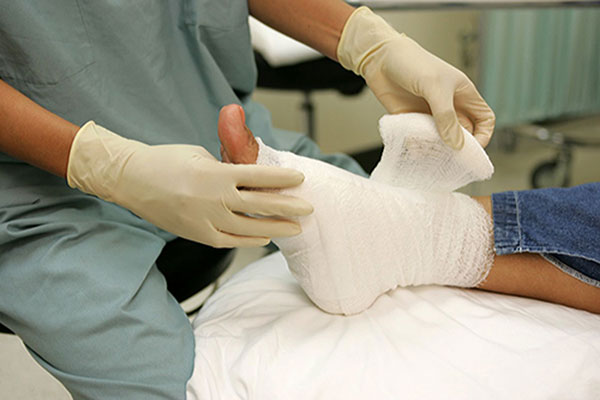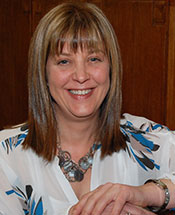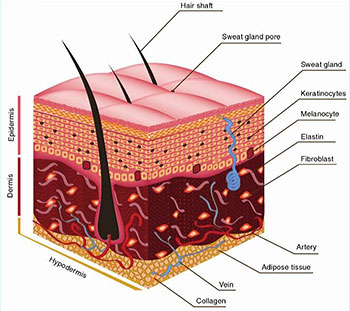Uni launches Institute of Skin Integrity and Infection Prevention

Tue, 23 Sep 2014 15:39:00 BST
“...chronic wounds and tissue viability is taking up about five per cent of the current NHS budget...”
 TREATING wounds and coping with serious infections contracted during healthcare treatment is costing the NHS more than a billion pounds a year, and it is widely expected that expenditure will rise as the population ages. Now a multi-disciplinary team of experts at the University of Huddersfield will collaborate on research leading to greater scientific understanding of human skin and to the development of new products such as advanced wound dressings and super-effective drugs.
TREATING wounds and coping with serious infections contracted during healthcare treatment is costing the NHS more than a billion pounds a year, and it is widely expected that expenditure will rise as the population ages. Now a multi-disciplinary team of experts at the University of Huddersfield will collaborate on research leading to greater scientific understanding of human skin and to the development of new products such as advanced wound dressings and super-effective drugs.
The Institute of Skin Integrity and Infection Prevention (ISaIP) has been launched, with the aim of placing the University of Huddersfield at the forefront of research and teaching in the field. It has 12 core members, from the fields of healthcare, biology, chemistry, engineering, pharmacy, psychology and textile design.
The Institute is directed by Dr Karen Ousey (pictured left), a nurse by profession, a wound care expert and Reader in Advancing Clinical Practice at the University. “The overall vision is to provide research which fundamentally improves quality of life for patients through a ‘bench to bedside’ approach, based on scientifically-rigorous methods with a clinical focus,” she states.
The team includes chemists who have formed collaborations with the pharmaceutical industry and who also design new molecules that have enormous potential in wound care, for example as building blocks for tissue engineering and for drugs that could target the site of a wound.
Harnessing expertise
 The University of Huddersfield also has major research expertise in metrology – the science of measurement – and is home to the globally-respected Centre for Precision Technologies. This gives the Institute a capability to measure skin interface, skin integrity and surface texture, plus the capacity to measure the surface texture and effectiveness of wound dressings.
The University of Huddersfield also has major research expertise in metrology – the science of measurement – and is home to the globally-respected Centre for Precision Technologies. This gives the Institute a capability to measure skin interface, skin integrity and surface texture, plus the capacity to measure the surface texture and effectiveness of wound dressings.
Engineering expertise harnessed by researchers will also lead to new methods of measuring pressure, shear and friction – concepts that are well known in the field of engineering, but also of great importance to wound care and healing.
The development of medical textiles – used for wound care, protection, hygiene and surgical applications – is a massive growth area. At the University of Huddersfield, the School of Art, Design and Architecture possesses well-established expertise in textiles and the latest technology for design and production. This could lead to new developments in bespoke wound dressings and materials with anti-bacterial properties.
Quality of life for people with chronic wounds
Now that it has been launched, the ISaIP intends to provide consultancy services and to carry out research on behalf of industry. It will also offer opportunities for postgraduate research and explore ways of assessing and improving the quality of life for people with chronic wounds.
The background to the work of the Institute is that the management of wounds in general and the challenges posed by chronic wounds and tissue viability is taking up about five per cent of the current NHS budget. Also, the cost of treating what are termed healthcare associated infections (HCAIs), especially surgical site infections, is costing a further £1 billion. The rise of resistant organisms, such as MRSA, related to misuse and over-use of antibiotics, is another clinical area of concern.
“These estimated annual costs of chronic wound management and HCAIs are probably underestimates, but they are likely to rise with our ageing population and continuous technological advances,” states Dr Ousey. “The Institute of Skin Integrity and Infection Prevention places the University of Huddersfield at the forefront of research and teaching in this area.”
In this video Dr Ousey talks about the collaboration of scientists and engineers working alongside health care professionals in wound care research.
Members of the ISaIP are: Dr Karen Ousey, Dr Leigh Fleming, Professor Barbara Conway, Dr Nik Georgopoulos,Dr Jess Power, Professor Nigel King, Dr Paul Humphreys, Professor Joe Sweeney, Professor David Leaper, Dr Serena McCluskey, Leanne Atkin, Heather McClelland.







